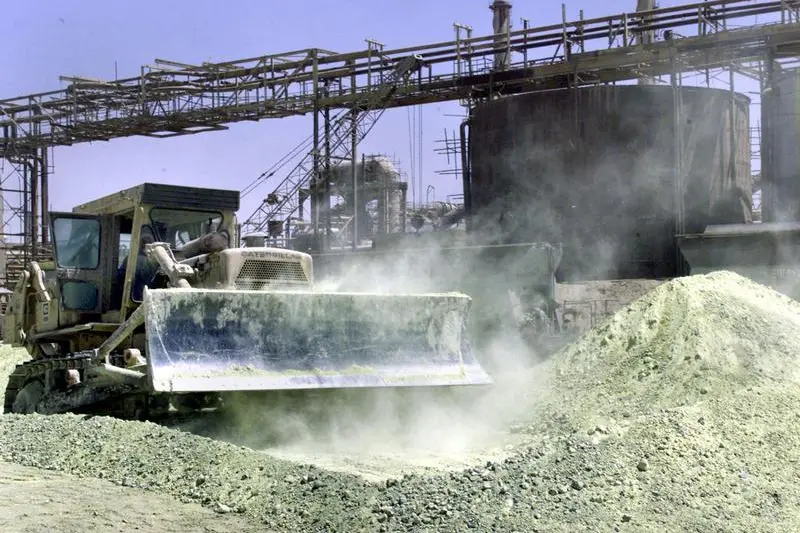PHOTO
TUNIS - Tunisia's state phosphate production fell by 18.5 percent in the first nine months this year to 3.1 million tonnes compared with the same period last year, due to protests in the south, according to figures from the state-run company Phosphate Gafsa.
Phosphate exports are a key source of foreign revenue for Tunisia.
Last May President Beji Caid Essebsi ordered the army to protect phosphate, gas and oil production facilities after protests aimed at disrupting output broke out in the south of the country.
The government had wanted to double its phosphate production to 6.5 million tonnes in 2017 after output returned to its highest monthly level in the first three months since 2010, when annual output was running at about 8 million tonnes.
Officials say lower production has caused Tunisia to lose some foreign markets such as India and Brazil and the country has turned to focusing on exporting phosphates to European countries.
Tunisia lost nearly $2 billion in recent years due to the drop in its phosphate exports after repeated protests in the main phosphate-producing region of Gafsa, where unemployed youth demanding jobs blockaded rail transport tracks near mines.
(Reporting By Tarek Amara; Editing by Greg Mahlich) ((tarek.amara@thomsonreuters.com;))
Phosphate exports are a key source of foreign revenue for Tunisia.
Last May President Beji Caid Essebsi ordered the army to protect phosphate, gas and oil production facilities after protests aimed at disrupting output broke out in the south of the country.
The government had wanted to double its phosphate production to 6.5 million tonnes in 2017 after output returned to its highest monthly level in the first three months since 2010, when annual output was running at about 8 million tonnes.
Officials say lower production has caused Tunisia to lose some foreign markets such as India and Brazil and the country has turned to focusing on exporting phosphates to European countries.
Tunisia lost nearly $2 billion in recent years due to the drop in its phosphate exports after repeated protests in the main phosphate-producing region of Gafsa, where unemployed youth demanding jobs blockaded rail transport tracks near mines.
(Reporting By Tarek Amara; Editing by Greg Mahlich) ((tarek.amara@thomsonreuters.com;))





















